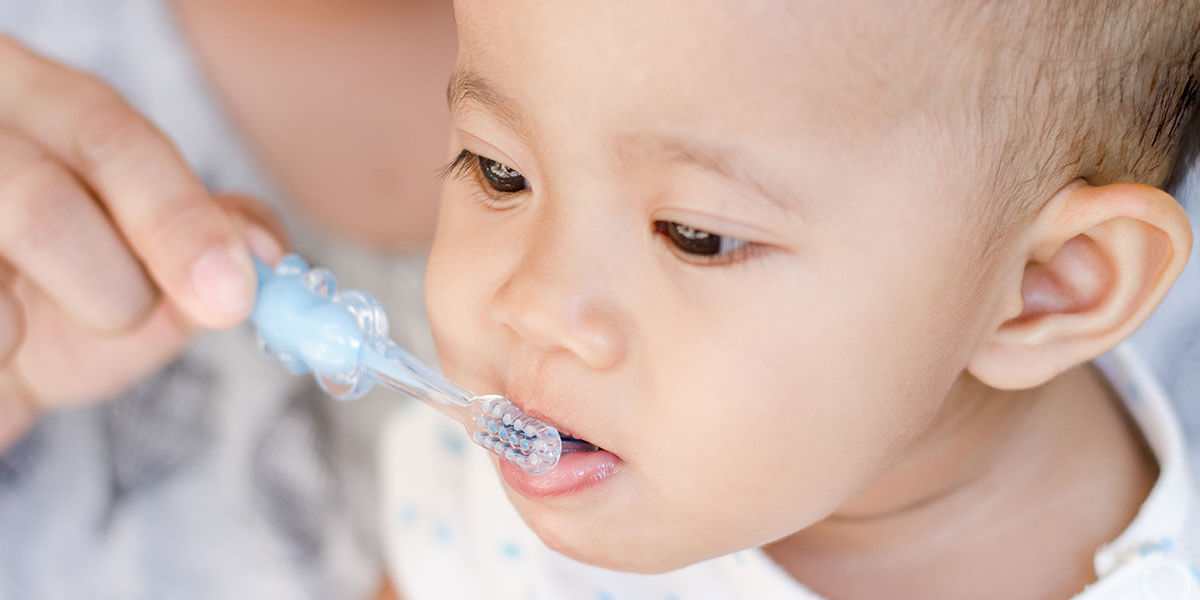
Dental Care for Babies: A Comprehensive Guide for Parents
Introduction
The health and well-being of a baby’s teeth are crucial for their overall development and well-being. Dental care should begin even before the first tooth erupts, and it is essential for parents to understand the importance of proper oral hygiene practices for their little ones. This comprehensive guide will provide parents with all the necessary information on dental care for babies, from the first tooth to toddlerhood.
When to Start Dental Care
Dental care for babies should start even before the first tooth appears. Parents should gently clean their baby’s gums with a soft, damp cloth or gauze after each feeding. This helps remove any bacteria or food particles that may accumulate on the gums.
The First Tooth
The first tooth usually erupts around 6 months of age, but it can vary from baby to baby. When the first tooth appears, it is important to start brushing it twice a day with a soft-bristled toothbrush and a small amount of fluoride toothpaste.
Brushing Techniques
When brushing your baby’s teeth, use a gentle circular motion and avoid scrubbing too hard. Brush all surfaces of the teeth, including the front, back, and chewing surfaces. It is important to supervise your baby while brushing to ensure they do not swallow the toothpaste.
Fluoride Toothpaste
Fluoride is an essential mineral that helps strengthen teeth and prevent cavities. It is recommended to use a fluoride toothpaste for babies as soon as the first tooth erupts. Choose a toothpaste with a fluoride concentration of 1,000 ppm (parts per million).
Frequency of Brushing
Babies should have their teeth brushed twice a day, once in the morning and once before bed. This helps remove plaque and bacteria that can cause cavities.
Pacifiers and Bottles
Pacifiers and bottles can contribute to tooth decay if they are not used properly. Avoid dipping pacifiers in sugary substances like honey or juice. Also, limit the use of bottles at night, as the constant exposure to sugary liquids can damage the teeth.
Thumb Sucking
Thumb sucking is a common habit in babies, but it can lead to dental problems if it continues for an extended period. If your baby is thumb sucking, try to gently discourage them by offering a pacifier or other alternative.
Teething
Teething can be a challenging time for babies and parents alike. To relieve teething pain, try giving your baby a cold teething ring or a frozen washcloth to chew on. You can also massage their gums with a clean finger.
Dental Visits
The American Academy of Pediatrics recommends that babies have their first dental visit within 6 months of the first tooth erupting or by their first birthday. These early visits allow the dentist to assess the baby’s oral health, provide guidance on proper brushing techniques, and discuss any potential dental issues.
Common Dental Problems in Babies
- Baby Bottle Tooth Decay: This is a condition that occurs when babies are frequently exposed to sugary liquids from bottles or pacifiers. It can lead to severe tooth decay and damage.
- Early Childhood Caries: This is a type of tooth decay that affects young children, including babies. It is caused by frequent exposure to sugary foods and drinks.
- Trauma: Babies can experience dental trauma from falls or accidents. If your baby has any dental trauma, it is important to seek immediate dental care.
Prevention of Dental Problems
- Regular Brushing and Flossing: Brush your baby’s teeth twice a day with a soft-bristled toothbrush and fluoride toothpaste. Flossing can also help remove plaque and bacteria from between the teeth.
- Limit Sugary Foods and Drinks: Avoid giving your baby sugary foods and drinks, as they can contribute to tooth decay.
- Avoid Pacifiers and Bottles at Night: Limit the use of pacifiers and bottles at night, as the constant exposure to sugary liquids can damage the teeth.
- Regular Dental Visits: Take your baby for regular dental visits to assess their oral health and prevent any potential dental problems.
Conclusion
Dental care for babies is essential for their overall health and well-being. By following the tips outlined in this guide, parents can help ensure their baby’s teeth are healthy and strong. Remember, early dental care is crucial for preventing future dental problems and promoting a lifetime of good oral health.
